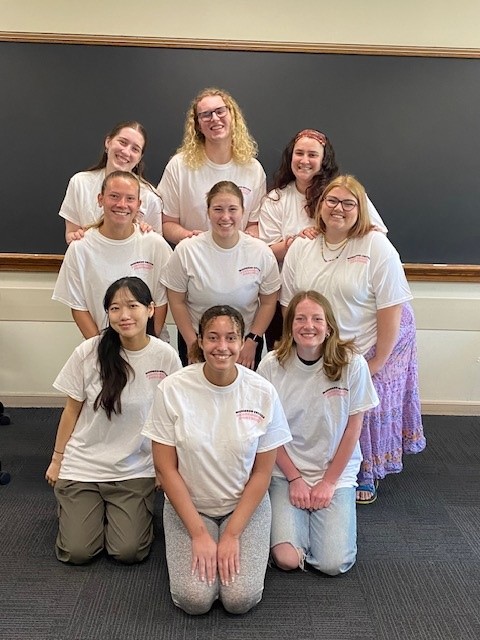Pedagogical Partners Program

Pedagogical Partners are students who observe their faculty partner's course in order to engage in a sustained conversation about pedagogical issues. The student partners have taken EDST 391: Pedagogical Partners in Higher Education where they learn how to be partners, how to observe a classroom and take observation notes, how to offer formative feedback including relevant interventions, and how to view the classroom through several different pedagogical lenses.
What kinds of feedback do pedagogical partners give?
Student partners bring to your classroom a student’s view of your teaching and, in so doing, they provide a perspective that is often missing from traditional observations of teaching. They do not evaluate you; in fact, they are trained not to pass judgment. Instead, they offer formative feedback and suggest interventions that may lead you to unexpected insights or new practices.
How does the partnership work?
-
Your will be assigned a partner in advance of the semester in which you will work together. The partner will introduce themselves via email or in person.
-
Near the start of the semester in which the partnership takes place, you will meet, talk about your pedagogical goals for the class, determine the focus of the observations, and clarify expectations. You may also want to review student assessment feedback (i.e. IDEA form) and seek your student partner's feedback on the syllabus.
-
It is recommended that your partner visit eight classes, but you may adjust this number as needed.
-
You should introduce the partner to your class at the first visit and explain their role.
-
After each observation, you will meet with your partner for thirt minutes to discuss the observation.
-
At mid-term or any other time during the semester, your partner could collect formative feedback from the students.
-
At the end of the experience, your partner will send you a memo summing up the goals, observations, and solutions that you arrived at.
What will you gain from participating?
- An ongoing conversation about your pedagogy
- A memo offering formative feedback from your student partner’s perspective
- A $200 stipend
What is expected of you ?
- You will allow the student to observe your class up to eight times.
- As a faculty pedagogical partner, you will meet with your student pedagogical partner for thirty minutes after each observation to discuss the observation.
What about confidentiality?
- The student partners will attend regular staff meetings, led by Noreen Lape, where we will discuss their observations and their feedback. Those meetings are strictly confidential.
- The CTLS works to strengthen the teaching and learning culture at Dickinson. Any teaching consultations with CTLS staff, including student pedagogical partners, are confidential and will not be reported to any college officials or governing committees.
To learn more about this program and/or request a student partner, contact Michele Lee Kozimor, Director of the CTLS (kozimorm@dickinson.edu).
*****
In addition, the Norman M. Eberly Multilingual Writing Center and the Quantiative Reasoning Center both host their own student partner programs.
Writing Associates partner with faculty to support students in First-Year Seminars and writing-in-the-discipline courses. To learn more about this program or to request a WA, contact John Katunich, Director of the Writing Program.
Quantitative Reasoning Associates partner with faculty to support students in courses with quantitative content. To learn more about this program or to request a QRA, contact Jackie Campbell, Associate Director fo the Quantiative Reasoning Center.